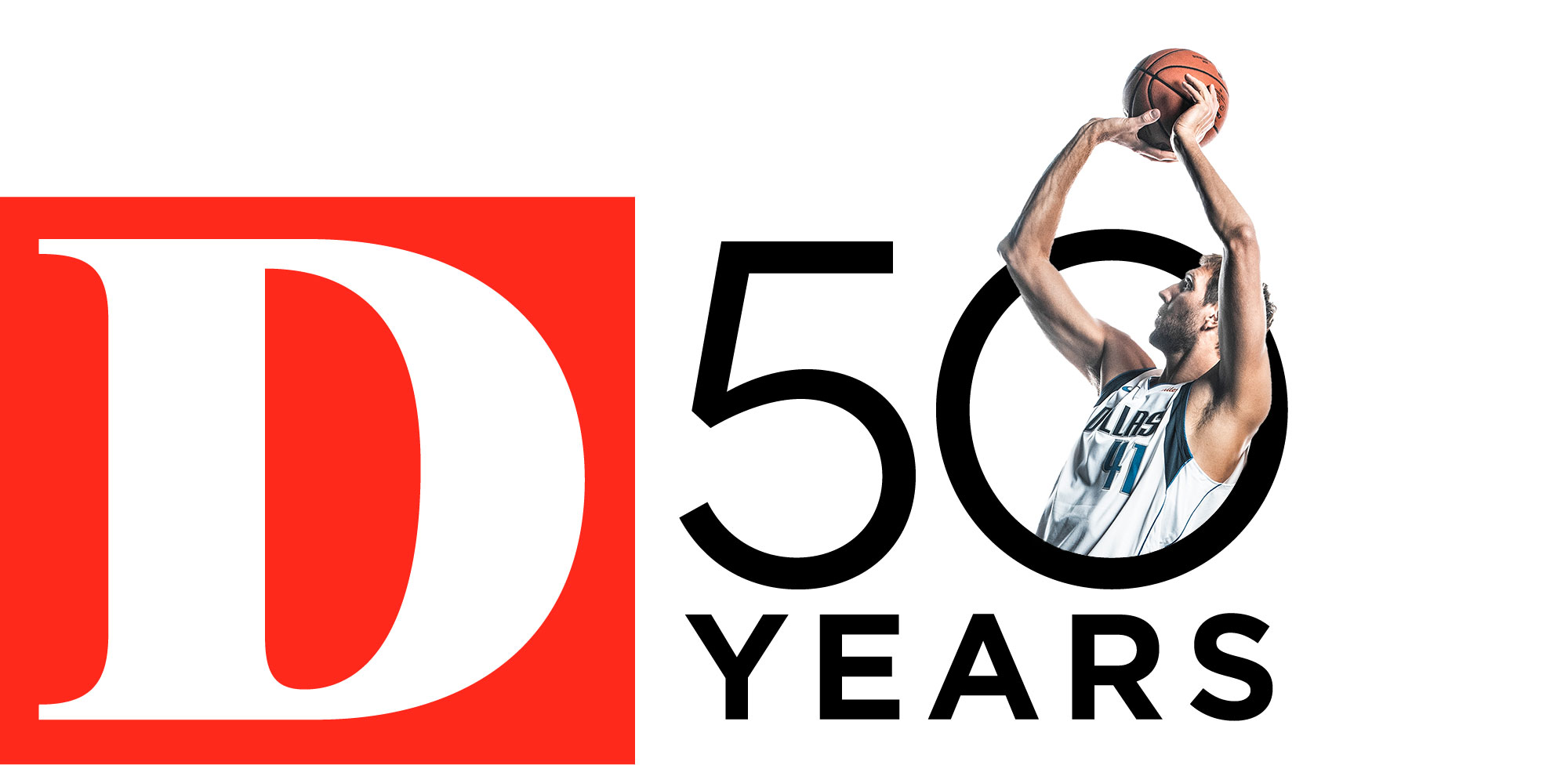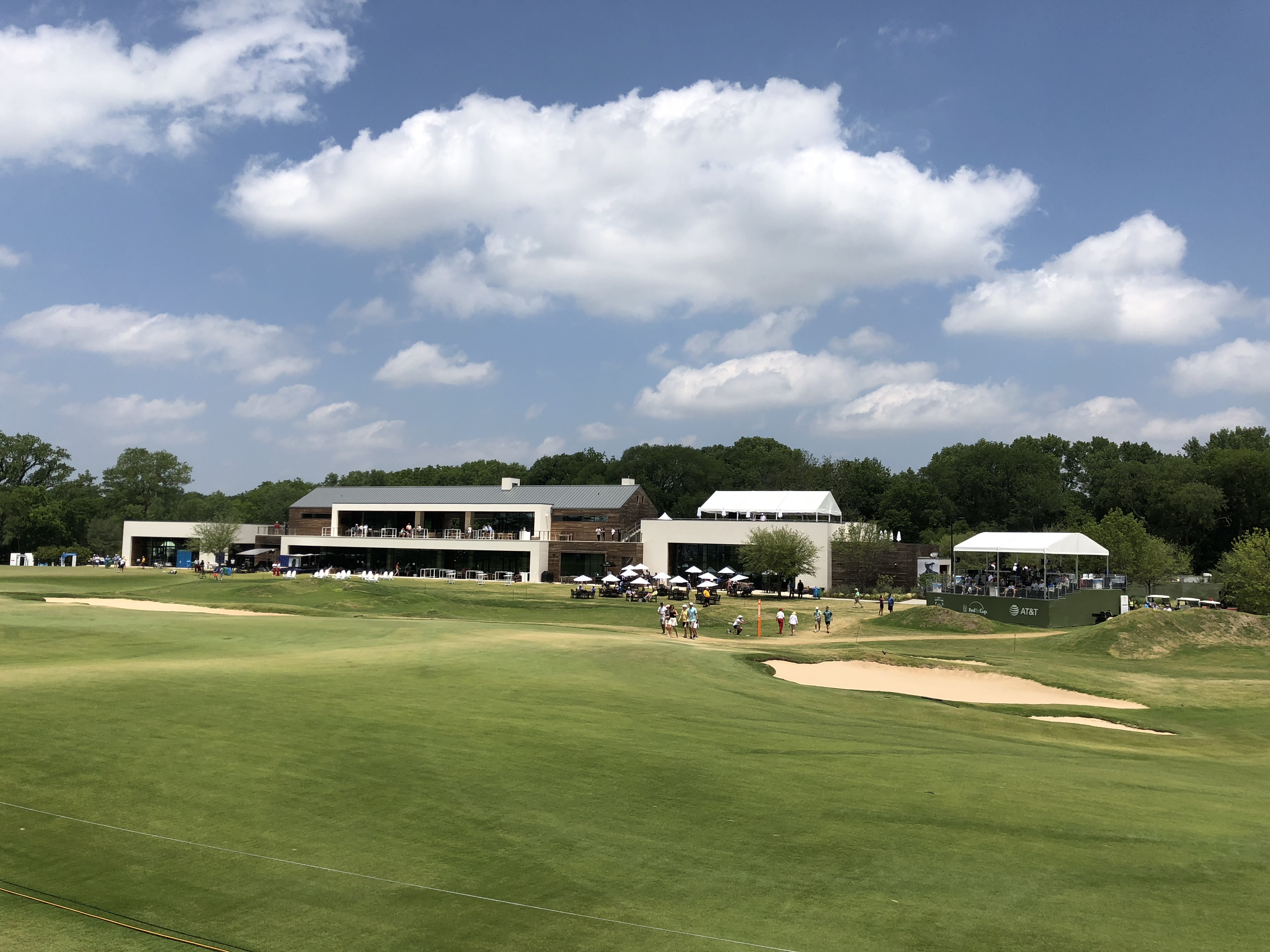I’ve got some issues with the contract between the city of Dallas and the Trinity Forest Golf Club. There is math. But before I address that, here’s some news:
Trinity Forest Golf Club (hereinafter TFGC) announced yesterday that they will host an annual tournament called the Dallas Amateur Championship. It’ll be a 36-hole tourney held July 21 and 22. To play in it, you have to first qualify at Cedar Crest. For the qualifier, you’ve got four days to choose from; the first one is June 8. More details here.
I think this is a pretty cool deal because, first of all: golf. Second, Cedar Crest is a great track, and this will draw some serious golfers to a municipal course in southern Dallas as they try to qualify. Then you’ve got the tournament at TFGC. I occasionally play poker with some guys who might be able to qualify for this thing. I’m assuming Tony Romo and Mike Modano and some dudes like that will make it through. How cool would it be to watch a buddy compete with Tony Romo? On the women’s side, I bet these ladies will tee it up. This will be fun. So kudos on all that.
But now I want to talk about something I’ve been trying to figure out for too long. It’s the TFGC’s contract with the city Dallas, which owns the land upon which the course was built. The part of the contract in particular that has me stymied me is the section that details how many public rounds the course has to host every year. You want a challenge? Scroll down to page 30 here, and read what constitutes a “public round” of golf at TFGC and how many have to be played every year. (Every Dallas resident who plays in the Dallas Amateur Championship, by the way, will rack up at least two public rounds, though the tourney isn’t limited to Dallas residents.)
I’m going to simplify this a bit and ignore “carryover rounds” and “relations to the third degree of consanguinity” and some of the other complicated stuff in the contract. Basically my beef boils down to a) some overly complicated math and b) discrimination (though the not sort that probably jumps to mind).
As for the math: the contract stipulates that the TFGC must host at least 300 public rounds every year, assuming the course is open for the entire year. But it also must host a number of public rounds as determined by a formula driven by the number of rounds played by TFGC members. The contract says:
The Public Play Requirement is met, for a particular calendar year during which the Golf Course is in operation during the Term, if each of the following two conditions are met for such year: (A) the sum of (I) the number of Public Play Rounds during such calendar year, plus (II) the number of Carryover Rounds from the immediately preceding calendar year equals or exceeds twenty-five percent (25%) of the number of Denominator Rounds for such calendar year and (B) the total number of Specific Public Play Rounds for such calendar year plus the Specific Carryover Rounds from the immediately preceding calendar year equals or exceeds 300.
Like I said, let’s ignore the carryover rounds. The number of public rounds must be 25% of the number of something called “denominator rounds.” What’s a denominator round? Glad you asked. The contract says:
The term “Denominator Round” means the sum of (I) any Public Play Round; and (II) any other rounds of golf played at the Golf Course by other than (i) a member (or accompanying guest) of an SMU intercollegiate golf team, (ii) a participant (and accompanying 31 guests) in the First Tee program, or (iii) a participant/competitor in any professional (including but not limited to the Byron Nelson Championship) or intercollegiate tournament.
Add up all those parenthetical “i”s and the only group remaining is TFGC members. And this gets us to the overly complicated math. My informed guess is that members play about 5,000 rounds every year at TFGC. So you might think, Oh, that means the number of public rounds has to be 25% of 5,000. The answer is 1,250. Hang on, though. Remember: the number of denominator rounds is the sum of the number of public rounds and the number of member rounds. So the answer is actually 1,666.
There’s a simple formula for this. The number of public rounds is always 1/3 the number of private rounds. That gets you 25% of the denominator rounds. (Full disclosure: I got a woman who designs fighters jets for a living to do this math for me.) Why wasn’t the contract written in simpler, easily understood terms? My bet: lawyers.
Finally, let’s tackle the discrimination thing. There’s a clause in the contract about it:
Lessee shall not discriminate against Public Play by imposing unreasonable restrictions or conditions on such rounds, including but not limited to relegating it to less favorable or convenient periods of the day or seasons of the year … .
I think an argument can be made that the TFGC is indeed discriminating by imposing unreasonable restrictions. I myself have played the course. I did so as a member of the media who was playing in the Byron Nelson media tournament. Technically, that should have counted as a public round. But I think it’s very unreasonable to require that someone become a journalist in order to play TFGC. It’s not just unreasonable; it might be criminal.
Some of the folks who qualify to play in the Dallas Amateur Championship, as mentioned earlier, will rack up public rounds (if they are Dallas residents). But that sure feels like an unreasonable restriction. You’d have to be a supremely gifted athlete to make it into the tournament. Top .05% of golfers. Something like that.
The TFGC is closed to members on Mondays. On those days, I’m told, the club hosts Wounded Warriors and charity tournaments and the like, racking up public rounds. Requiring that I serve my country and suffer an injury seems like an unreasonable restriction. So does requiring that I be part of the social caste that can afford to participate in the sort of charity tournaments held there.
There’s a simple fix here. And the contract even suggests it:
The term “Specific Public Play Round” means a round of golf played or available for play at the Golf Course (I) by an individual who is a resident of the City of Dallas and is not a member of Lessee (or accompanying guest) and (II) that is available to the general public through a lottery system or first-response system (or other similar system).
Hold a lottery every year. Set aside a certain number of Mondays for lottery winners to play. That would be some truly public golf. But I think you and I both know why that will never happen. The answer: Zac Crain might win that lottery.





